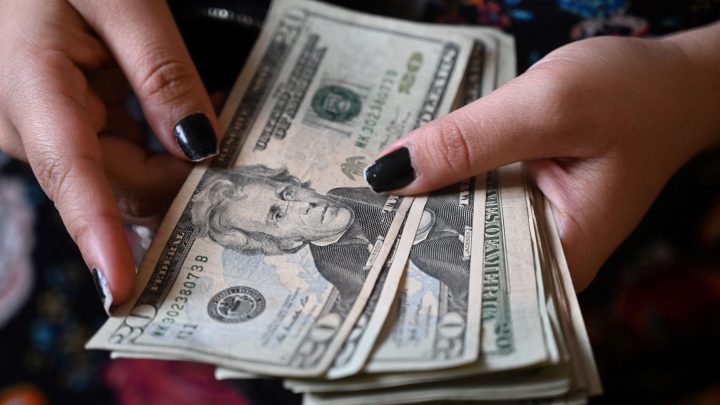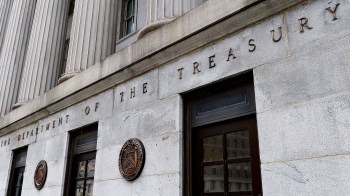
What do people do with stimulus checks? Yes, buy stuff — but also pay down debt
What do people do with stimulus checks? Yes, buy stuff — but also pay down debt

A number of states have issued economic stimulus checks this year. California cut checks to help residents with high gas prices, and New Mexico gave its citizens kickbacks from oil and gas profits. These are on top of the federal stimulus checks sent out during the height of the pandemic.
But these “windfall” payments don’t necessarily mean people spend more money on extra things, like new shoes or dining out. A recent study from the Federal Reserve Bank of New York shows that people often use government stimulus money to pay off debt — especially if they have a lot of it. That can help families secure greater future financial stability.
Sabrina Calazans graduated from college in 2019 with a ton of student debt. But she didn’t find a job until almost two years later — well into the COVID-19 pandemic. “So it was a really tough period for me,” she said.
Her federal student loan payments were paused during the pandemic, but Calazans also had private loans to contend with. So those government stimulus checks she got really came in handy.
“For my private student loans, my interest rate was about 12% and 13%,” she said. “So I really wanted to tackle that as much as I could.”
Calazans said she also used some of the money to pay off credit card debt. That’s not uncommon, especially for people who owe lots of money at high interest rates, according to Gizem Koşar, a research economist at the New York Federal Reserve.
“On average, we see that people who are indebted spend around like 40% of their stimulus checks to repay their debt,” she said.
This comes from a recent study that Koşar and her colleagues published using COVID stimulus payment data. Now, a lot of people did also buy stuff for their homes with those checks, which got a lot of attention because of all the supply chain snags it caused.
But it turns out, per Koşar, paying down debt has an effect on the future economy. “Paying down your debt actually increases your future consumption, and that gives you a higher lifetime satisfaction.”
Now, all that said, the COVID stimulus payments may be unique, said Scott Baker, professor of finance at Northwestern University.
Whereas earlier stimulus checks — from 2008 and 2001 — were intended to “stimulate” growth by encouraging spending, Baker explained that COVID-era payments landed in a different economy and were meant to keep people afloat.
“If you expect people to go out and spend frivolously on, you know, travel or eating out at fancy restaurants, well, they couldn’t really do those things even if they wanted to during COVID,” he said.
With fewer spending options, Baker added that it makes sense people would have used stimulus money to catch up on things like student loan payments or credit card debt.
And what about this current round of stimulus checks that some states have been doling out this year? Baker points out they come at a time when rent forgiveness and the pause on federal student loan payments are ending.
While Baker expects to see some extra spending, “households will likely be paying down some debt as well.”
Especially with interest rates as high as they are now.
There’s a lot happening in the world. Through it all, Marketplace is here for you.
You rely on Marketplace to break down the world’s events and tell you how it affects you in a fact-based, approachable way. We rely on your financial support to keep making that possible.
Your donation today powers the independent journalism that you rely on. For just $5/month, you can help sustain Marketplace so we can keep reporting on the things that matter to you.

















